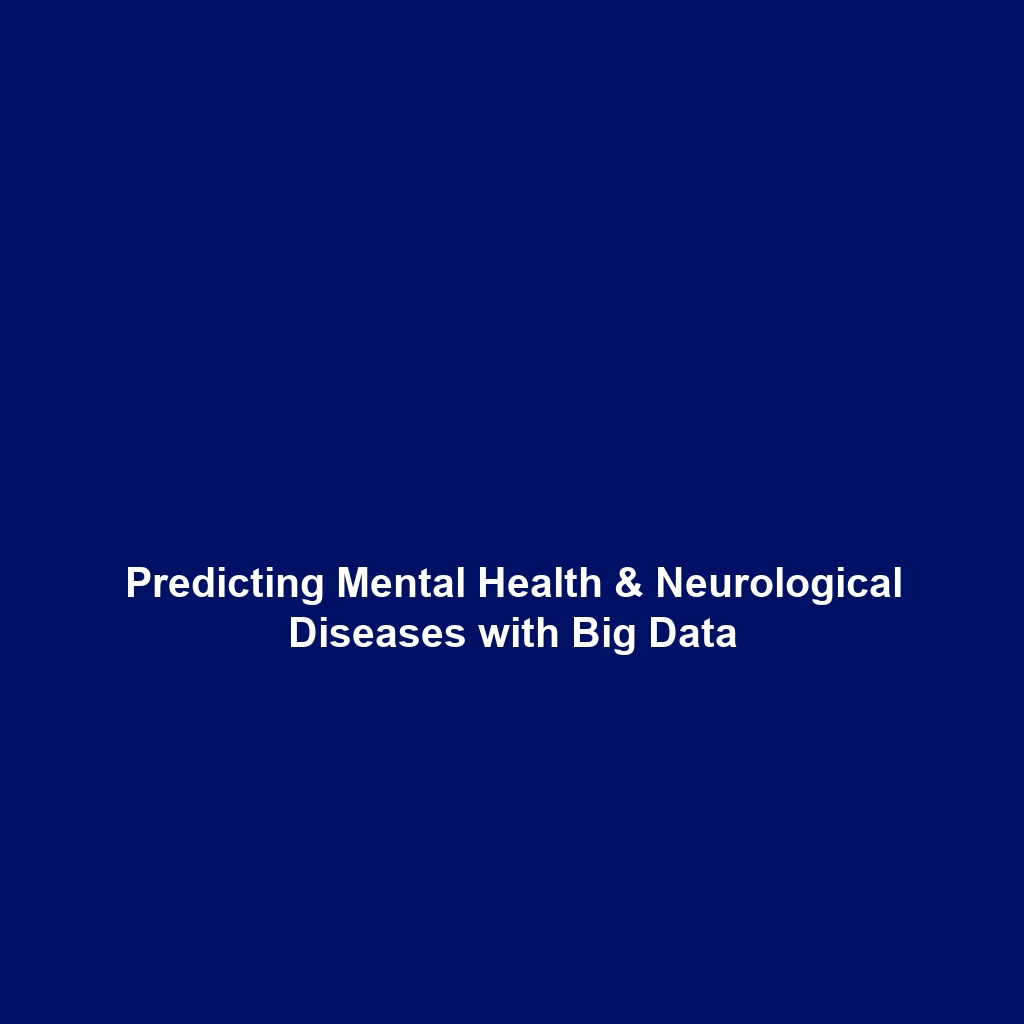Using Big Data to Predict Mental Health Conditions, Neurological Diseases, and Treatment Outcomes
Introduction
In today’s rapidly evolving technological landscape, big data has emerged as a transformative force in science, particularly in the fields of mental health and neurology. By harnessing large datasets that include brain scans and genetic information, researchers can gain invaluable insights into predicting mental health conditions and neurological diseases. This article explores the significance of using big data for making informed predictions and improving treatment outcomes, emphasizing its impact on Big Data in Science.
Key Concepts
The Role of Big Data
Big data refers to the analysis of vast sets of structured and unstructured data, enabling scientists to identify patterns that might not be evident through traditional research methods. In the context of predicting mental health conditions, this involves integrating various data sources such as:
- Brain imaging data (MRI, fMRI, PET scans)
- Genetic sequencing information
- Patient history and symptom reports
Data Analytics Techniques
Advanced analytics techniques, including machine learning and deep learning algorithms, play a crucial role in processing and interpreting these datasets. By utilizing big data in science, researchers can improve diagnostic accuracy and customize treatment plans.
Applications and Real-World Uses
The application of big data in predicting mental health conditions and neurological diseases has led to groundbreaking developments. Here are some significant real-world applications:
- Early Detection: Utilizing AI algorithms to analyze brain scans, enabling earlier detection of conditions like Alzheimer’s.
- Personalized Medicine: Tailoring treatment plans based on genetic profiles and predictive analytics results.
- Risk Assessment: Assessing individual risk factors for mental health issues through comprehensive data analysis.
These applications showcase how big data is used to predict mental health conditions and ameliorate treatment outcomes, reinforcing its importance in the category of Big Data in Science.
Current Challenges
Despite the promising advancements, there are notable challenges associated with utilizing big data in mental health and neurology:
- Data Privacy: Concerns regarding the confidentiality of sensitive health information.
- Data Quality: Challenges in ensuring accurate, high-quality data inputs for reliable predictions.
- Integration Issues: Difficulties in combining diverse data types from multiple sources.
- Interpretation: The complexity of interpreting results from advanced analytics can be daunting.
These challenges of using big data highlight the ongoing issues in the field of Big Data in Science.
Future Research and Innovations
Looking forward, research in the intersection of big data, mental health, and neurology is expected to cultivate innovative breakthroughs:
- AI Advancements: Next-generation AI technologies could enhance data analysis and prediction accuracy.
- Wearable Technology: Integration of wearables for real-time data collection will support more dynamic assessments.
- Collaborative Databases: Developing shared databases to improve data richness and facilitate research collaboration.
Future innovations are likely to redefine how we utilize big data to predict mental health conditions and therapeutics.
Conclusion
In conclusion, the utilization of big data in predicting mental health conditions and neurological diseases is reshaping the landscape of research and treatment. The integration of brain scans and genetic data plays a pivotal role, making it essential in the sphere of Big Data in Science. As we continue to address challenges and explore future innovations, the potential for improved outcomes is immense. For those interested in delving deeper into this topic, consider exploring our research on mental health or applications of big data in neuroscience.
